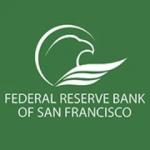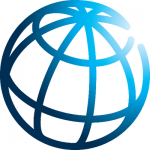In brief: The world’s unbanked and Fintech innovation
With headlines each week spotlighting millions of dollars in fintech funding, for the development and trialing of cutting-edge technology like the distributed ledger, digital currencies or their deploying platforms, it’s easy to lose sight of the core, perhaps altruistic, driving force of creating technology: advancement.
With headlines each week spotlighting millions of dollars in fintech funding, for the development and trialing of cutting-edge technology like the distributed ledger, digital currencies or their deploying platforms, it’s easy to lose sight of the core, perhaps altruistic, driving force of creating technology: advancement.
“Globally, we’re seeing the emergence of payment systems via mobile phones in places where the vast majority of people are unbanked or underbanked, but have cell phones,” said President and CEO of the San Francisco Federal Reserve John C. Williams during a presentation he gave to the Lendit USA 2016 conference last week.
“Instead of paying huge fees for bank-like services, it’s all done through text or the touch of a few buttons. This has made its mark in some areas, is starting to gain a foothold in others, and even has potential here.”
— – John C. Williams, President and CEO of the San Francisco Federal Reserve
The World Bank’s Global Findex, a comprehensive database on financial inclusion launched in 2014, listed around 2.5 billion adults as being unbanked consumers, those without access to even basic financial services.
Two-thirds of adults cited in a 2014 World Bank study listed lack of money as the single biggest obstacle. The other third cited the cost of opening and maintaining an account, and physical access to a bank, as reasons for not owning a conventional account.
But digital currency and related fintech innovations, from automated teller services to smartphone technology that facilitates payment and reception of money, are helping buck traditional impediments to accessing financial services. The horizon is already expanding further than imagined 15 or 20 years ago.
The Sub-Saharan African region, according to a report released by the European Investment Bank (EIB) last July, “leads the world in mobile money accounts: while just 2 percent of adults worldwide have a mobile money account, 12 percent [64 million adults] in SSA have one.”
Of that 64 million, 45 percent listed their mobile money account as the only account they possessed.
The result in Sub-Saharan Africa (SSA), as stated by the World Bank, is that “mobile money accounts can drive financial inclusion.” The EIB confirmed the claim, even in a region where the financial systems are underdeveloped, where the banking sectors are typically concentrated, and generally inefficient at financial intermediation.
“They are constrained by their small size. Competition is still limited, albeit increasing.”
— – European Investment Bank
Mbwana Alliy, managing partner at African technology venture firm the Savannah Fund, said in February, “You have a headwind from Silicon Valley and Europe blowing into Africa now around the disruption in fintech. The banks are really nervous and they want to get ahead of this,” as reported by Quartz’ Elizabeth Gould.
A fintech hub and accelerator program were recently established in Cape Town, the accelerator launched in March with a cast of 10 startups.
The fintech fervor in the SSA region is built on an expectation of capitalizing on the market-ready conditions. On the other hand, fintech innovation has a place in the region because it’s helping advance the societies there.
The movement of digital assets (physical currency represented in digital information), or in the case of Kenya, South Africa and elsewhere, digital currency (M-pesa), allows users to deposit, withdraw and transfer money to pay for goods and services with ease, using a mobile device.
Gloria M. Grandolini, a senior director at World Bank Group and chair of the Global Remittances Working Group explain that these transaction accounts open up access by, “providing a basic entry point, or pathway, to broader financial inclusion.”
Citizens of lower economic level are able to save and secure money. They can accept and direct government benefits and can connect and access financial services in rural areas, all facilitated by smartphone technology and related applications.
From Nigeria to Mozambique the positive benefits to broader financial access is a reality, as barriers to access have been eased by financial technological progression.
Nigerian students in the West African republic were encouraged and motivated to open their own (transaction) accounts, and were taught how to use an online account to save money and pay bills, safely and securely.
In Mozambique, mobile-money has been used to increase remittances in rural areas, taking the position of informal practices that once dominated the nation’s countryside.
These are stepping stones toward achieving even broader financial goals, which is leading the initiative, according to the World Bank.
Mobile devices are gateways, they facilitate access, expandable beyond currency alone, to insurance, clean water and solar energy. But there are particular difficulties in offering digital services.
“Providing physical access to financial services or cash-in/out points and ensuring sufficient liquidity at access points, including in rural areas, remain the core challenges in moving toward digital payments.”
— – The World Bank
The World Bank Group, parent organization of the World Bank, slated 2020 as the target year to achieve Universal Financial Access (UFA), an initiative that calls for adults everywhere to have access to a transaction account to store money, send, and receive payments.
Despite current progress, oversight, accessibility, and proper development also remain pivotal obstacles.
According to Alexandra Rehak, an independent strategy consultant and co-author of the report Sub-Saharan Africa telecoms market: trends and forecasts 2013–2018, “affordability, coverage and effective regulatory and market structures remain major challenges for successful telecoms development in Africa.”
Nevertheless, the advancement of fintech, especially digital currency’s use and application, is critical to achieving the UFA target, the success of which rests on access to a transaction account, attainable with something as simple (and innovative) as an electronic instrument to store money, send, and receive payments.
As the World Bank explained, it’s the basic building block to managing one’s financial life. Financial inclusion is a pillar of any modern capitalist society. While the dialogue around digital currency and fintech innovation is typically cornered by the negatives associated with crime and terrorist activity, there are shining positives and they don’t just start and stop in the developing world.
In a broader sense, fintech innovation already plays an important role in alleviating gaps traditional banking cannot fill.
The forecast for telecoms service revenue in the SSA market is slated to increase at a 6% CAGR during 2013–2018 (mobile at 6.7%), according to the same report cited above. This will represent a jump from US$49 billion in 2013 to more than US$65 billion in 2018.
At this point, it shouldn’t be about the profit-margin and cost-analysis of servicing the unbanked. It should be about service itself.
Kevin Hobbs was a Day Trader for Swift Trade, and Corporate Trader for FIRMA Foreign Exchange, before assuming his current role as the director of Vanbex Group.

Don’t miss out – Find out more today

 “Instead of paying huge fees for bank-like services, it’s all done through text or the touch of a few buttons. This has made its mark in some areas, is starting to gain a foothold in others, and even has potential here.”
“Instead of paying huge fees for bank-like services, it’s all done through text or the touch of a few buttons. This has made its mark in some areas, is starting to gain a foothold in others, and even has potential here.” “They are constrained by their small size. Competition is still limited, albeit increasing.”
“They are constrained by their small size. Competition is still limited, albeit increasing.”
 “Providing physical access to financial services or cash-in/out points and ensuring sufficient liquidity at access points, including in rural areas, remain the core challenges in moving toward digital payments.”
“Providing physical access to financial services or cash-in/out points and ensuring sufficient liquidity at access points, including in rural areas, remain the core challenges in moving toward digital payments.”

